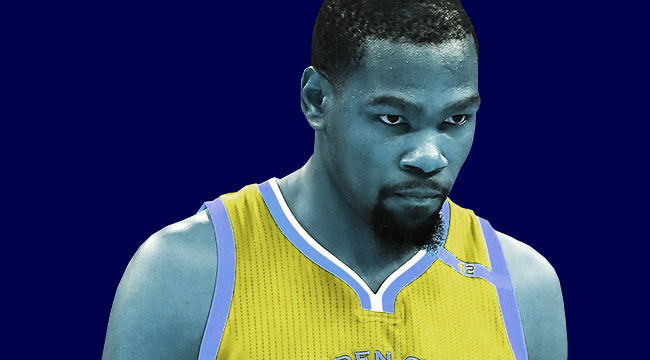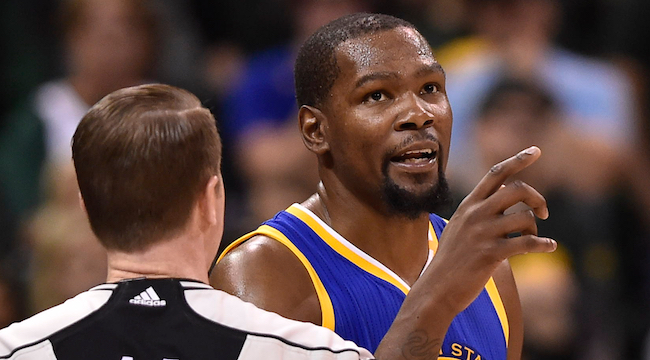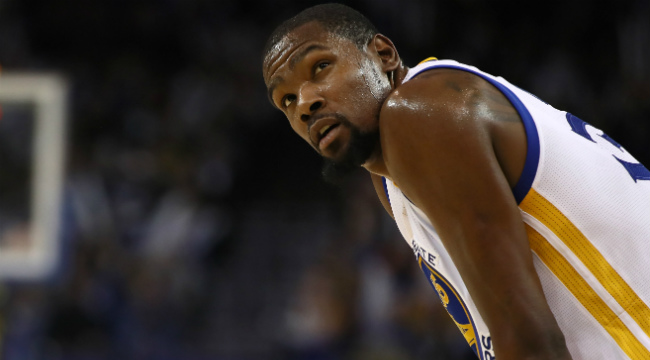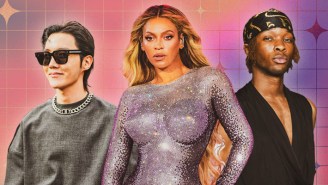
The NBA (and sports fans in general) have a competitive balance issue on their hands. And Kevin Durant signing last offseason with the Golden State Warriors shattered the last illusion of parity that the NBA had.
In the interest of honesty, the idea of parity in the NBA is laughable, as only nine different teams have won titles within the last 17 years. And all of those nine teams carried familiar faces or names along with them: Shaq, Kobe, Tim Duncan, Lebron, ‘Sheed (Okay, that last one is a reach, but any time you can throw Rasheed Wallace into a post, you do it).
The closest the NBA ever came to parity was in the 1970s (7 different champions in a 10-year span), and people were so starved for any sort of break from dynasties in the league’s past that the Finals were televised on tape delay up until Larry Bird and Magic Johnson came along.
Which brings us along to Kevin Durant and his decision to ply his wares in Oakland, and along with that the (false) idea that Kevin Durant would be riding the coattails of Stephen Curry and Klay Thompson to an NBA Finals appearance. Even if that were the case, and this is something with a lot more nuance than 140 characters or quick hits on midday sports talk shows, there’s still one question to go along with that: who cares?

The current media and fan culture is akin to what Rick Bobby said in Talladega Nights, “if you ain’t first, you’re last”. Championships mean everything when it comes to the perception of current and former athletes. And Kevin Durant, as notorious a bridesmaid never a bride as we’ve seen in quite some time, knows that as well as anyone.
Mention Charles Barkley or Patrick Ewing, and often the first refrain about their careers is the lack of championships rather than their highlights or Hall of Fame status. When fans and media members do this, it eliminates context. It slashes the effort these players put in, kills any sort of understanding of barriers in the league at that time, or forgoes even front office hurdles.
For example, the New York Knicks have yet to see the success that they had under Ewing before he was unceremoniously traded to Seattle in 2000. The Knicks hit 50 wins or more in a season five times during Ewing’s tenure. In the 16 seasons since, the Knicks have eclipsed 50 wins just once. To a lesser extent, recently-named Hall of Famer Tracy McGrady was often derided for his inability to get his team out of the 1st round of the playoffs, rather than taking into account the often Herculean effort it took to even get into the playoffs.
Which brings back up KD’s decision to go out to the Bay. Only Durant, his inner circle, and those involved in the Hamptons meetings really know Durant’s true motivations behind the move, but it’s not hard to read between the lines. Durant likely saw this as an opportunity to change public perception as a guy who came up short. He sees the culture where fans and media look at rings and nothing else, and that’s why he took the “easy way” out.

When public perception strips away context and eschews facts for the simple statement of “why don’t you have a championship,” people can’t bring out their pitchforks or pretend to be disappointed in their decision, especially when that environment has been fostered, cultured, and grown into a very massive beast that can affect the bottom line for many of these players.
At the end of the day, it’s totally up to the public to decide the merits of a player – and the legacy that player will have long after he retires. One can choose to hold onto any sort of resentment or continue to engage the culture that has players choosing to scurry to situations where there may be a competitive advantage. Or the fans can look in the mirror and ask themselves what they’ve done to contribute to that situation. Without context, we’re never going to have a league filled with parity.
Until then, the decisions rightfully belong to the players, not to us.






